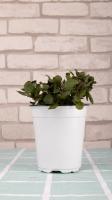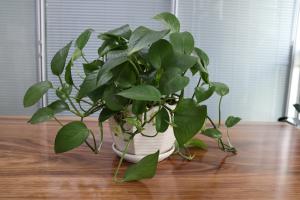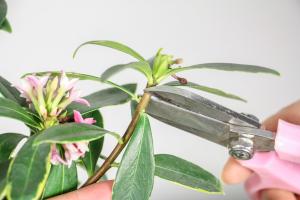Is Dirty Fish Water Good for Plants?
Many gardeners and aquarists swear by the practice of using fish water to fertilize plants. In theory, it seems like a great idea: the fish waste provides nutrients for the plants, the plants help filter the water for the fish, and everyone benefits. But is it really wise to add dirty fish water to your garden? Let's take a closer look.
The Pros of Using Fish Water as Fertilizer
The first and most obvious benefit of using fish water in your garden is that it provides nutrients for your plants. Fish waste contains nitrogen, phosphorus, and other minerals that are essential for plant growth. Additionally, the bacteria that break down the waste produce a type of fertilizer called "fish emulsion," which is highly valued by gardeners.
Another advantage of using fish water as fertilizer is that it helps maintain a healthy aquatic environment. Fish produce waste constantly, and if left to accumulate, it can become hazardous to their health. By using the water to irrigate plants, you can reduce the amount of waste in the aquarium while also providing a vital resource for your plants.
The Cons of Using Fish Water as Fertilizer
While using fish water as fertilizer has some benefits, there are also several potential drawbacks that should be taken into consideration.
The first issue is that fish water can contain harmful bacteria and toxins. If the aquarium is not properly maintained, the waste can build up and create an environment that is conducive to the growth of harmful microorganisms. These can be passed on to the plants, creating a health hazard for anyone who eats them.
Another issue is that the concentration of nutrients in fish water can be unpredictable. Unlike commercial fertilizers, which are formulated to provide a specific balance of nutrients, fish water may contain varying amounts of nitrogen, phosphorus, and other minerals depending on the feeding habits of the fish and the condition of the aquarium.
Finally, using fish water can create unwanted odors in your garden. Fish waste has a strong, unpleasant smell that can linger for a long time. This can be particularly unpleasant if you have neighbors who are sensitive to odors.
How to Safely Use Fish Water as Fertilizer
If you decide to use fish water in your garden, it's important to take steps to minimize the risks. Here are some tips for using fish water safely:
Make sure the aquarium is properly maintained and the water is free of harmful bacteria and toxins.
Test the water for nutrient levels before using it as fertilizer, and dilute it if necessary.
Apply the water to the soil, rather than the plant foliage, to reduce the risk of bacterial contamination.
Avoid using fish water on edible plants that are eaten raw.
If odor is a concern, consider using a compost bin to break down the waste before using it as fertilizer.
Conclusion
In conclusion, using fish water as fertilizer has its pros and cons. While it can provide valuable nutrients for your plants and help maintain a healthy aquatic environment, it can also pose health risks if not used properly. Anyone considering using fish water as fertilizer should take the necessary precautions to ensure the safety of themselves, their plants, and their fish.

 how many times do yo...
how many times do yo... how many planted tre...
how many planted tre... how many pine trees ...
how many pine trees ... how many pecan trees...
how many pecan trees... how many plants comp...
how many plants comp... how many plants can ...
how many plants can ... how many plants and ...
how many plants and ... how many pepper plan...
how many pepper plan...




























